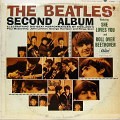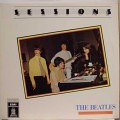- Bring on the Lucie by Hallelujah the Hills - October 9, 2015
- Experiment: Two Words - July 27, 2013
- POV - July 19, 2013

Greil Marcus
“When I became record reviews editor, I made it clear to him after a few months — nobody had done the job before me — that the record review section was an independent republic within the country of Rolling Stone. That meant that nobody else could tell me what to review or what a writer could say. They could argue with me, but ultimately it was my decision. And that worked well. There was one incident where Paul McCartney makes his first solo record and people thought it was wonderful: this rough, homemade one-man-band album. It was accompanied by a press release, a self-interview, about why he no longer needed the Beatles and how little he thought of them … this real obnoxious statement, you know? I assigned it to a friend of mine, Langdon Winner, and Jann saw the piece and said: “We can’t run it this way — he’s just reviewing it as if it’s this nice little record. It’s not just a nice little record, it’s a statement and it’s taking place in a context that we know: it’s one person breaking up the band. This is what needs to be talked about.” I said I didn’t agree and “in any case it’s up to Langdon to say what he wants to say.” Jann said, “We have to talk about this.” So we went to dinner that night and spent three fucking hours arguing about this record review. Finally he convinced me. So I went over to Langdon’s and sat down with him and spent three more hours arguing with him until I convinced him! Now to me this was the essence of great editing, of how you put out a publication that is utterly honest. All that time spent over one 750 word review! And it was worth it.”




Wait, what?
What was great editing about that? Jann Wenner deciding–wrongly, as it turns out–that McCartney’s press release was about “one person breaking up the band,” and then wearing Greil Marcus down, and them both wearing the reviewer down?
[A brief gratuitous aside: This, my friends, is exactly why everybody hates the Baby Boomers. They do something EXACTLY the way the power structure dictates, convince themselves that they did it differently, and then try to convince the rest us that they’re pure and heroic. Occupy the Baby Boomers!]
What Marcus describes is the opposite of great editing. That’s the founder of a publication choosing sides in a fight based on personality not facts, and then using his power to shape coverage, to the obfuscation of the issue and everybody’s detriment. When it’s Henry Luce and Vietnam, we boo and hiss; when it’s Jann Wenner being Lennon’s mouthpiece, we’re supposed to cheer?
As we all know, Lennon wanted to leave the Beatles in September 1969. But Klein told him to cool it; and so Lennon dragged his feet and treated the other three like dirt for seven months. Then when McCartney actually has the audacity to, y’know, make a pop record, Lennon flips out. And Rolling Stone is right behind him, adding fuel to the fire, saying that McCartney’s press release is an attempt to cast himself as the genius behind The Beatles–which is only OK when John does it, because John’s a real, true genius and artist, while Paul is, y’know, a square. The square who happened to be behind Sgt. Pepper, Hey Jude, and Abbey Road–the music that brought RS into being. But we’ll forget about that, because dimestore rebellion and agitprop makes for better copy.
RS and Wenner clearly didn’t know what the story was regarding the Beatles’ demise, didn’t dig like real journalists to find it out (“Lennon said he was leaving months ago”) and then found a villain that–mirabile dictu!–confirmed all their shallow, embarrassingly undergraduate prejudices.
Was the press release aggressive? Yes. Was it “Paul breaking up the band”? No. And if you read the review, it’s all about how supposedly false and manipulative the promotion for McCartney was–when the issue wasn’t that it was false (turned out that Paul really did like hanging out with his family in Scotland) or manipulative (McCartney is a good, but not great, LP), but that it wasn’t cool. It didn’t fit with Rolling Stone’s vision of what rock stars should be/do/enjoy. But who asked them?
The question is, did Rolling Stone’s foolish partisanship play a role in keeping John and Paul from making up in the early 70s? While Greil Marcus (and Jann Wenner) have every right to their opinions and memories, one need look no further than Rolling Stone itself to find some evidence for this possibility. If I remember the Mikal Gilmore article rightly, NOW the RS party line is that Lennon didn’t mean to end the band, and that the situation got out of control. I’d argue this was because Lennon was in full-blown Messiah mode, aided by outlets like RS.
The posturing of the rock press–its encouragement of Lennon The Important Artist, and disparagement of McCartney The Lightweight–played a significant role in keeping John and Paul at each other’s throats from 1970-72, when The Beatles could’ve continued with hardly a hiccup. So please: if you have fond memories of how Jann Wenner slagged McCartney, don’t call it good editing. RS missed the real story–that The Beatles had been breaking up for years–then compounded their error by becoming Lennon’s house organ. Then compounded it further by poisoning the air between John and Paul.
The Beatles, and rock, deserved better.
I have to say that, as this anecdote took shape, I expected it to culminate with something like: “And that’s when I knew Rolling Stone was going wrong.” That Marcus promptly flipped it into an instance of sterling editorship frankly mystified me as well.
The idea has always been that Rolling Stone promoted Lennon’s genius and McCartney’s triviality, and thus was founded the great destruction myth of the Beatles’ demise. But I wonder what textual evidence we can produce for this, beyond Wenner’s visible moves as editor and writer. When Marcus was editing the record reviews section (1969-70), their reviewers were just as hard on John and Yoko as the most conservative London daily. Later, Jon Landau famously trashed Ram, but, not being a Beatle fan to begin with, he certainly didn’t use the opportunity to extol John. Ben Gerston reviewed Imagine favorably, but had a prescient and unsettled response to “How Do You Sleep” and “Gimme Some Truth”: “I fear that John sees himself in the role of truth-teller, and therefore can justify any self-indulgent brutality in the name of truth.”
Their reviewer (it might have been Lester Bangs) dismissed Some Time in New York City. In 1974, Landau called Band on the Run a great album, while Walls and Bridges got a lukewarm-at-best notice. Et cetera.
I don’t think we can overestimate, or necessarily even imagine, how influential the Lennon Remembers interview was when it appeared in late 1970-early 1971. The fact that John was permitted to bloviate at such length (for which I’m glad: the interview is a great literary document as well as a self-pitying revisionist rant) and that Paul was never urged to give his rejoinder counted for more, I think, than all the John-great-Paul-evil reviews and plump pieces that, if you actually look at the pages, never actually appeared.
The power and influence of Lennon Remembers continues to this day: as I’ve argued on this blog, it is pretty much the only reason we still hear the White Album within the limits we do (“me and a backing band”). It is quoted endlessly, seldom in a skeptical spirit. But as with all collections of obiter dicta, we must take it with many grains of salt. For many years, it was the only deep vein of Beatle insight and unmediated feeling (possible exception: the Davies bio), and it shaped the discourse so powerfully for so long that it has come to seem like a law of history.
Thank you Michael. That quote is garbage.
Jann Wenner, in his fanboy obsession with Lennon, did uncalculated damage to Paul McCartney’s solo career and reputation. Wenner’s comment just enrages me: “It’s not just a nice little record, it’s a statement and it’s taking place in a context that we know: it’s one person breaking up the band. This is what needs to be talked about.” Were John and Yoko paying Wenner? Or was he just so enthralled with his access to Lennon that he played John’s mouth piece? Or even more gossipy, did John have an affair with Jann Wenner, who was closeted back then but is now openly gay?
McCartney never stood a chance, even if his behavior had been faultless, which it wasn’t.
I must say, however, I was shocked to read a somewhat different account of the breakup in the cover story that Rolling Stone ran in 2009 about the Beatles breakup. Mikal Gilmore wrote that story and he also wrote an online-only piece for that issue called “The Story Behind Our Cover.” It’s worth a read (http://www.rollingstone.com/music/news/why-the-beatles-broke-up-the-story-behind-our-cover-20090818). And it included a paragraph that I NEVER thought I’d see in that magazine:
“McCartney had simply been forced into an impossible position by John Lennon, George Harrison and Allen Klein. At least two of those men should have loved Paul as much as he loved them, but instead they had come to resent what they saw as his drive and his domineering ways. … Harrison and Lennon were profound men who understood the necessity for hope and fellowship, and yet they were also men who could be profoundly petty and ungrateful. Both of them early on came to dislike the reality of the Beatles’ massive audience — “Fucking bastards, sucking us to death,” John Lennon told Rolling Stone in 1970 — and both men became uncharacteristically obsessed with financial eminence near the group’s end. …
“But what I found most troubling, most tragic, in all of this was two things: Both Lennon and Harrison (Lennon, clearly, in particular) did their best to sabotage the Beatles from mid-1968 onward, and when it all came irrevocably apart, I believe that both men regretted what they had wrought. I don’t think that John Lennon and George Harrison (but Lennon, again, in particular) truly meant the Beatles to end, even though they might not have known it in the moment. I think they meant to shift the balance of power, I think they meant for the Beatles to become, in a sense, a more casual form of collaboration, and I think they clearly intended to rein in Paul McCartney. But they overplayed their hand and — there’s no way around it — they treated McCartney shamefully during 1969, and unforgivably in the early months of 1970.“
That is an astounding concession on many levels for RS magazine to publish. Naturally Wenner wouldn’t allow those words to be published in print. It was online only But I thought it was a pretty amazing statement to read in a magazine that has tried to establish as canon that McCartney was the main and sole villain.
You can still see Wenner’s Lennon bias today, given that in the magazine’s new issue of the 500 greatest albums, it lists All Things Must Pass at No. 437, while Lennon’s Plastic Ono Band is at No. 22 — even though a great many critics would argue that those numbers should be reversed. (Band on the Run is at No. 418 and of course Paul’s real masterpiece, Ram, doesn’t even make the cut).
— Drew
One more thing:
Mikal Gilmore, by the way, is publishing a book on the Beatles’ break up that’s due out in October 2013. How it will be any different or better than Peter Doggett’s book, which already covered this ground very well, remains to be seen.
The one thing about Gilmore I already distrust is that he claims Lennon was the Beatles’ one true “genius.” And worse, Gilmore claims that statement is “inarguable.” Both statements (which he wrote in that Rolling Stone article I mentioned) are crap.
It’s like Gilmore decided that if he was going to be harshly critical of Lennon’s post-1968 actions in Rolling Stone, he at least had to throw Jann Wenner a bone and state that Lennon was the only genius in the group.
As if McCartney’s fingerprints — musically — aren’t all over many of Lennon’s greatest songs. That was the genius of their collaboration. They made each other better.
— Drew
Yeah, this anecdote proves that the editors of “RS” could talk themselves in a circle and then pat themselves on the back for having come so far.
I agree with you about the “Lennon Remembers” interviews, Devin. Because Lennon was such a fascinating talker, the views he expressed have gone ringing down the years, too often to the exclusion of other viewpoints.
I think Lennon, in art and in interviews, was often incantatory, in the sense of attempting to speak things into being and make them true. IMO, part of what makes “Imagine” affecting is that it’s explicitly about this dynamic of believing/saying something in order to make it true.
But he did this in interviews, too, saying things he felt to be true as if they were the absolute truth. I don’t think it’s that he was consciously reshaping things, but that at times he was saying what he was in the process of convincing himself was true. Sometimes he admitted this, as when he later corrected his early 70s statement about having not collaborated with Paul McCartney in the second half of the Beatles’ career. I think it’s very important to read Lennon’s interviews with his incantatory tendencies in mind.
Drew, at this point the “Lennon-was-the-Beatles-only-genius” line has practically passed into Holy Writ. It’s crazy that some of the same people who uphold this idea consider Brian Wilson a genius — even though his gifts, like McCartney’s, are primarily for melody and arrangement, not lyrics. Part of the weight McCartney’s had to carry is being perpetually held up to Lennon and found wanting.
I think this explains why McCartney can be defensive, and why he felt the need to do “Many Years From Now,” which essentially gave him the same opportunity to state his perspective at length that Lennon’s interviews with Wenner did.
Nancy: If only McCartney had suffered from a mental illness. That would have been convenient and then he could be a genius, too. 🙂
— Drew
Rolling Stone could be a dangerous place for a critic who didn’t do as he was told. Jann Wenner fired Lester Bangs for writing a negative review of Canned Heat.
-Hologram Sam
I love this blog. Very mature and REALISTIC debates in the comments. A REAL eye opener. Please keep posting and commenting because I really love to read what everyone is saying.
Thanks, Just a Beatles Fan. Sincerely pleased that you enjoy the blog.